- Home
- Catherine Coulter
Double Take Page 4
Double Take Read online
Page 4
He made it to Chappy Holcombe’s Tara, a southern mansion built along the lines of the fictional Tara as described by Margaret Mitchell, in under thirteen minutes. Dix was a mess by the time he pulled into the large circular driveway in front of the house.
Chappy’s butler, Bernard, as old as the gnarly pine tree on Lone Tree Hill just outside of Maestro, or one of the sessile oaks in front of Tara, greeted Dix, his bald head shiny in the watery early spring afternoon sunshine. He said, his words spewing out fast, tumbling over one another, “Dix, he’s in his study. Hurry, something’s bad wrong, but I don’t know what it is, just that it’s about Christie.” Dix hurried after him, not saying a word.
Bernard opened Chappy’s study door and stood aside for Dix to enter.
Chappy was so rich he could probably bankroll the state of Virginia single-handedly for at least two days, a man who knew his own power and used it ruthlessly in business and at home, to keep his heir, Tony, and his heir’s wife, Cynthia, under his thumb. He was standing by his big antique mahogany desk, looking every inch the tall, lean aristocrat in a beautiful pale blue cashmere turtleneck sweater and black bespoke wool slacks. Dix always felt like a mutt standing next to him. Dix looked closely at his face. Chappy looked haggard, nearly frantic, not a sharp edge in sight, no malice brimming in his eyes, no hint he was a man who could blast a killing verbal blow in a smooth ironic voice. Chappy’s pupils were dilated, his face pale with shock.
What was happening here? What had he heard about Christie? Dix’s heart pounded hard and fast.
“Chappy.” Dix laid his hands on the older man’s shoulders, steadying him. “What’s wrong? What is this about Christie?”
Chappy shook himself, and Dix saw the effort it took to get himself together. “Jules saw Christie.”
“Jules?”
“Yes, you know Christie’s godfather—Jules Advere. You’ve met him over the years, Dix, don’t you remember? He’s been living in San Francisco for the past year, claimed he wanted a big city with a slower pace. He lives in Sea Cliff, right on the ocean, his house looks toward the Golden Gate Bridge.”
“Yes, okay. You say he saw Christie?”
“He called me, said he saw her.”
Dix’s hands fell away. He took a step back. He stared blindly at his father-in-law, shaking his head back and forth, his brain blank. He had to make himself breathe. He had to get spit in his mouth so he could talk. No, it wasn’t possible.
Chappy grabbed Dix’s wrist. “You know if anyone else had told me that, I’d have dismissed it out of hand, maybe even belted them, but not Jules. He was there when Christie was born. He knew her all her life. He might be older than I am but he’s not senile, Dix, and he’s still got the eyesight of an owl. Truth is, I’d trust him with everything but my money.”
And that was saying something indeed. Dix had met Jules Advere perhaps a dozen times before Christie had simply up and vanished that long-ago day. He pictured him in his mind the day Jules had flown into Richmond from some weird place like Latvia, a short, older man with a big dark mustache and a good-sized paunch on him that made Chappy razz him endlessly. He’d worked as hard as anyone trying to find Christie, did everything he could to comfort the boys. He’d even hired his own private investigator—but with no luck. No one had had an ounce of luck.
Jules had seen Christie? No, that was impossible. Dix had long ago accepted that Christie was dead, killed by some psychopath and buried in an unmarked grave somewhere, and it had sunk him deep into himself for too long a time, and nearly brought his sons into the pit with him. He thought about his sons, Rob and Rafe, what this news could do to them. He wasn’t going to say a word about this to them. Not yet.
He was a cop and he had to take a step back, had to get it together. “Chappy, where did Jules say he’d seen her? In San Francisco? Did he speak to her? Come on now, get your thoughts together and tell me everything.”
Chappy slumped down onto a three-hundred-year-old Hepplewhite chair covered with what looked like the original green-and-white-striped brocade. He looked down at his Italian loafers. Dix saw his hands were trembling. Chappy said, “He was attending a fundraiser at one of those big yahoo penthouses on Russian Hill, given by a man supporting a senatorial candidate. Jules said it was this guy’s wife—he said there was no doubt in his mind. She was Christie.”
“What’s this guy’s name?”
“Thomas Pallack. I’ve done business with him. He was here in Maestro once, maybe three and a half years ago, before Christie disappeared. He only stayed a couple of days. I don’t think he met Christie, though. He’s decades older than even the income tax laws, and he’s wealthy, made his money in oil and diversified. Like I said, it’s his wife, that’s what Jules said—his wife is Christie.”
Dix said slowly, patiently, “You know that’s impossible, Chappy. You know it.”
“I know it, but still, Dix, I’m just not as certain as you are. Yes, yes, I know she’d never have left you willingly. She loved you and the boys more than anything. Hell’s bells, she even loved me, even tolerated her brother’s idiot wife. But Jules swore it was her. It shook him so much to actually see her he told me he thought he was having a heart attack—searing pain all up his right side and he couldn’t breathe. He said he whispered ‘Christie’ to her and Thomas kneeled down beside him while they were calling 911. He said Pallack leaned close and said, ‘My wife’s name is Charlotte. Do you understand? Don’t forget it.’ Jules said Christie looked down at him like a hostess would at someone who was ruining her party, a sort of polite forbearance because the last thing she wanted was for this old buzzard to die on her beautiful oak parquet floor. Admittedly he felt really sick at this point, even admitted he didn’t see any recognition in her eyes when she looked at him, and that bothered him because, you see, he knew it was her.”
“So you’re saying Jules never got to speak to this woman before he collapsed?”
“No, just the one look in the receiving line, and then he was lying on his back staring up at her. The paramedics arrived and whisked him off to the hospital. Turns out he hadn’t had a heart attack, but the doctors wondered if he’d suffered some sort of temporary stroke, said it could paralyze your body and make you keel over, that it could happen to an old guy like him. He called me from the hospital a few minutes ago while they were still doing all their infernal tests, said you had to get out to San Francisco, find out what Christie is doing there.”
“It’s not Christie, Chappy. She’s dead. You heard what Jules said, the woman looked at him with no recognition at all.”
“Then who the hell is she?”
Dix only shrugged, but all the memories, all the faded pain was back again, almost bowling him over, as it had in those early months after she’d disappeared. It isn’t Christie!
He said, “We’re all supposed to have a twin somewhere on this earth, a thought that should curdle your own blood, Chappy. Evidently Jules met Christie’s twin, nothing more, nothing less. It wasn’t her, Chappy, it couldn’t have been Christie. So you know this guy Thomas Pallack, it’s a coincidence, nothing more.”
“No, Dix, wait! What if Thomas Pallack’s wife is Christie and she’s lost her memory or something? She was in some sort of accident or had some sort of mental breakdown? Hell, maybe she escaped something terrifying that made her repress everything.”
“Chappy—”
“She might have ended up in San Francisco, met Thomas Pallack by chance, married him for whatever reason, I mean, the guy is older, and—if that’s so then naturally she wouldn’t recognize Jules. She had to have a name, so she called herself Charlotte. Dix, Jules is so certain. You’ll go to San Francisco, won’t you? Hell, no problem, both of us will go.”
Dix didn’t pause, simply walked to the door of Chappy’s study, and said over his shoulder, “Chappy, I’ll tell you what. I’ll go to San Francisco, find out what this is all about. I’ll meet this Thomas Pallack and his wife. I don’t want you to come with me, Chappy
. I need you to stay here, see to the boys.” Then he stopped, turned. “Chappy,” he said very quietly to Christie’s father—not to the man whose soggy morals sometimes drove him nuts, the man who wouldn’t lift his foot off his own son’s neck—“please don’t get your hopes up. It simply can’t be Christie. Deep down you know it. You know Christie is dead.”
Chappy didn’t say a word.
“And don’t say anything about this to anyone, all right? Not even to Tony or Cynthia. The last thing I want is for the boys to hear their mother might be alive, have them go through this pain again when I know it simply can’t be true.”
“You got it, Dix. I won’t say anything.”
When Dix reached the double front doors, Chappy’s white face still stark in his mind, Bernard appeared at his elbow. Dix said, “Make sure you see to Chappy, Bernard. I think he needs a good shot of something. I know Mrs. Goss keeps a bottle of twenty-five-year-old single malt Scotch whisky. What’s it called?”
Bernard said with reverence, “Lord of the Isles. She said she gave it to her husband for an anniversary gift, then he up and died the next week. She hoards it. I think it must be about thirty years old now, almost as many years as she’s been the house-keeper here!”
Dix nodded. “Maybe she’ll break it out this once.”
“Doubtful,” Bernard said, then blurted out, “Do you think it’s Christie, Dix?”
So Bernard had been listening at the door. Dix would have been, too. He looked Bernard straight on, saw the concern in his dark eyes. Bernard had been with Chappy since the two of them were in their twenties. “No, it can’t be. It’s some sort of mistake. Bernard, like I told Chappy, this has to stay among the three of us. You understand? Not even Mrs. Goss.”
Bernard nodded. “Last thing I want is for Rob and Rafe to hear about this.”
“That’s good,” Dix said. “I’ll see you again soon, Bernard.”
CHAPTER 8
Two hours later, at the dinner table, Dix slipped Brewster, his four-pound white toy poodle, a sliver of chicken breast after he’d stripped off the deep-fried crust. He checked to see that both boys had eaten some of the fresh green beans on their plates, and lied cleanly. “I’ve got this meeting up in San Francisco that will last a couple of days. The FBI called me today, said they wanted me to talk on a panel about crime scenes. Truth be told, there’s still lots of interest about our bizarre murder in Winkel’s Cave. That’ll be what everyone will want me to talk about.”
“Sure is short notice, Dad,” Rafe said, frowning down at his crispy chicken leg. Rafe was fourteen, still skinny as a rail, with eyes dark like Dix’s. He was going to be a lady-killer, as Chappy told Dix whenever he saw his grandson. Just like Rob. Have you given them The Talk, Dix? Dix rolled his eyes now, remembering how he’d given them both The Talk, though they were as embarrassed as he was. It gave him a headache to think about it. Why wasn’t Rafe eating? He was always eating. Dix saw the huge pile of bones on his plate and realized Rafe’s tank was full. Dix pointed to the pile of green beans still on his plate, and watched his son pick one up and began chewing on it. “It’s not like San Francisco is just across the state or something.”
“No, it’s a long trip.”
“Isn’t Ruth coming tomorrow?” Rob asked. “She said she wanted to see me pitch against the Panthers.”
Ruth Warnecki, a former Washington, D.C., cop and now an FBI special agent, worked in the Criminal Apprehension Unit at the Hoover Building. He’d known her since he’d saved her life a little more than two months ago. She was smarter than she had a right to be, as obstinate and persistent as he was, and she was endlessly kind. Fact was, he was crazy about her. Thinking about her made him grin at odd moments and sing in the shower, particularly when he pictured her on her back beneath him, her strong legs wrapped tight around him.
So much had happened since he’d found her, so very much, but now Ruth was his; he knew his boys felt the same way, though they also felt guilty about it when they thought of their mother. But they’d allowed Ruth into their lives in a way they had no one else. They laughed with her, worried with her, confided in her.
The four of them had become a solid unit, if not a legal one. Dix had a missing wife, no actual proof of death. If he sought a divorce, he’d have to do it on stated grounds of abandonment. The thought of accusing Christie of abandonment made him sick. No way would he allow that word to come out of his mouth, out of anyone’s mouth for that matter, or have it recorded on any document. So what sort of plans could they make? So far it hadn’t seemed to matter. He and the boys visited Ruth at her home in Alexandria and she visited them here in Maestro, usually for three-day weekends if she could talk her boss, FBI Unit Chief Dillon Savich, into it, which she usually could. She hadn’t spoken recently of reassignment to the Richmond Field Office. Actually, they’d spoken hardly at all about the future. Everything they talked about was short term. He closed his eyes a moment, realized he and Ruth were hovering in a sort of limbo. The future was like a hibernating bear in the corner of the living room, ignored by everyone because it seemed the polite thing to do and, truth be told, it was easier.
He had to call Ruth, see if she still wanted to come out since he wouldn’t be here, but he knew she would. She loved his boys, he knew that just as he knew her love wasn’t contingent on their future plans. But should he tell her the truth? He had to think about it. He did know she’d never buy the story about an FBI conference, and that would mean another lie altogether. He hated lies, always had. You usually got tangled up in lies, and busted yourself.
Dix said, looking at his eldest son, “I’ll bet she’ll still want to come see you play, Rob. Thing is, the guy who was going to speak fell over with a heart attack. Yep, I’m their second choice, but on the plus side, I’ll get to see a lot of friends I haven’t seen in a long time. I want you guys to stick to the rules, you got that?”
Rob was sixteen, nearly as tall as Dix and filling out, growing into manhood. Dix gave him the Eye. Rob took it in and didn’t even squirm, just nodded solemnly. He was growing up, Dix thought, and that both depressed him and made him proud. Where had the years gone? “You’re in charge, Rob. Don’t give him grief, Rafe, okay? If Ruth comes, you guys take good care of her. There’s some spinach and sausage lasagna in the freezer. Feed her that, not pizza. She’ll probably make up a salad for all of you. And you’ll eat it without complaint.”
“Sure, Dad,” Rob said, and Dix immediately knew Ruth would be surrounded with pizza from the instant she walked into the house, Brewster panting at her heels. He knew she’d laugh and fetch the lasagna out of the freezer, and the boys would get both, and a salad.
Rob said, “Dad, have you seen Ruth’s fastball now that I’ve been working with her?”
Dix nodded. Ah, Christie, we did good with our boys, and Ruth does well with them too. Dix had spoken to Christie a lot over the years. His memory of her, the feeling of her presence, would always be with him, easing the bad times and making the good times better. But he knew all the way to his soul that Christie was dead, more than three years dead.
This was an entirely different woman in San Francisco, he had no doubt. But he still had to make the trip, had to make sure, for all of them. If he didn’t go he knew Chappy would, and who knew what kind of grief that would cause? And in the back of his mind, a voice softly asked, If she is Christie, what then?
Brewster was gnawing on his trouser leg. Dix leaned down and picked up the well-fed furball whose eyes would melt Scrooge’s heart, straightened his dark blue collar, and hugged him close. “Don’t you get too excited when you see Ruth, okay, Brewster? She doesn’t need you to pee on her again.”
The boys laughed. “Brewster loves her leather jacket,” Rafe said. “She told me Brewster supports her dry cleaners.”
The boys moved on to talking about school. They’d bought his story. Good. The last thing they needed to know was the real reason he was flying to the West Coast.
CHAPTER 9
&
nbsp; WASHINGTON, D.C. THE HOOVER BUILDING
Friday morning
When Special Agent Ruth Warnecki bent down to pull the bottom of her slacks out of her boot she heard Dillon Savich say to his boss, Jimmy Maitland, "Take a gander at this. This sketch is excellent.”
“I was thinking maybe it’s too good,” Maitland said. “Is Cheney sure the witness didn’t embellish?”
“Cheney said the reason it’s so detailed is that the guy didn’t mind showing her his face up close and personal, because he planned to kill her. He ended up throwing her into San Francisco Bay, where she would probably have drowned if Cheney hadn’t gotten her out in time.”
“Good for Agent Stone,” Maitland said, “and a remarkable chunk of good luck for the victim. It was a coincidence, right, Savich? He isn’t dating her, is he, or surveilling her, something like that?”
Ruth couldn’t help listening in. She knew Cheney. She leaned closer to the door and heard Dillon say, “Nope, I asked him about that. Cheney said he’d never seen her before in his life. The thing about Cheney Stone is he’s got great instincts and this karma sort of thing that seems to put him in the right places at critical times. Weirdest thing I’ve ever heard of. But even without the woo-woo—as an agent, Cheney’s good, very good. This Julia is lucky he was there.”
Maitland nodded, started pacing in front of Savich’s desk. “I’ve read some of his reports. He’s got good recall. Did you know he’s got a law degree?”
Savich grinned. “I say thank the Lord he crossed over to the side of the angels.”
Maitland grunted, unconsciously flexed an impressive bicep. “Yep, we need him more than the world needs another damned lawyer.”

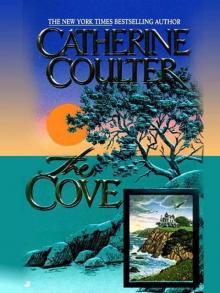 The Cove
The Cove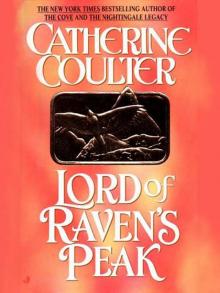 Lord of Raven's Peak
Lord of Raven's Peak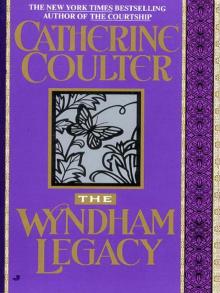 The Wyndham Legacy
The Wyndham Legacy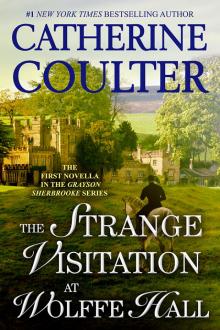 The Strange Visitation at Wolffe Hall
The Strange Visitation at Wolffe Hall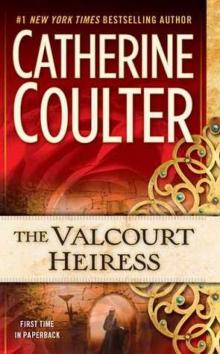 The Valcourt Heiress
The Valcourt Heiress Bombshell
Bombshell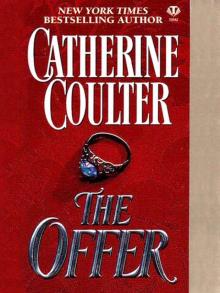 The Offer
The Offer The Edge
The Edge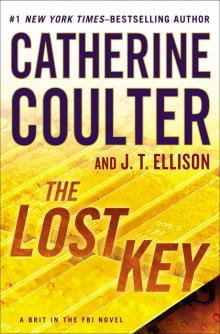 The Lost Key
The Lost Key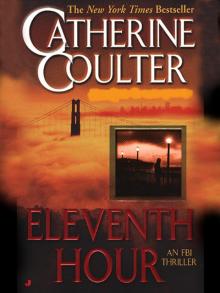 Eleventh Hour
Eleventh Hour Blindside
Blindside Devil's Daughter
Devil's Daughter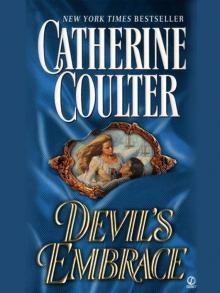 Devil's Embrace
Devil's Embrace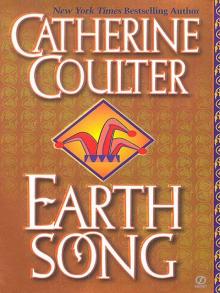 Earth Song
Earth Song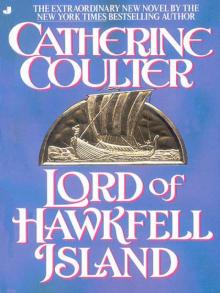 Lord of Hawkfell Island
Lord of Hawkfell Island Calypso Magic
Calypso Magic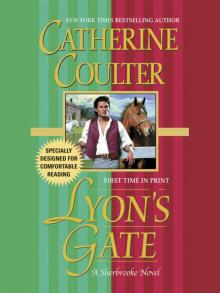 Lyon's Gate
Lyon's Gate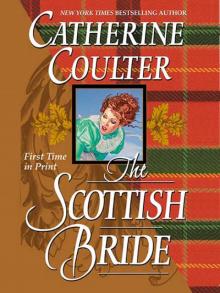 The Scottish Bride
The Scottish Bride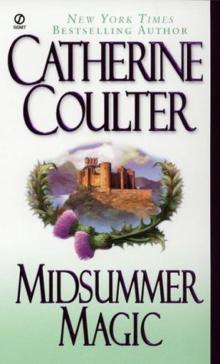 Midsummer Magic
Midsummer Magic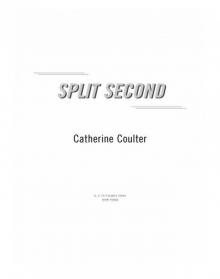 Split Second
Split Second Enigma
Enigma Blowout
Blowout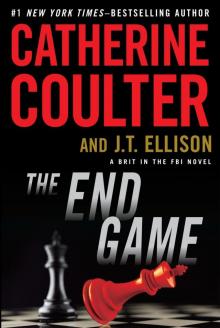 The End Game
The End Game Double Take
Double Take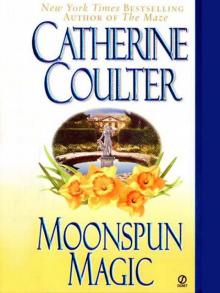 Moonspun Magic
Moonspun Magic The Courtship
The Courtship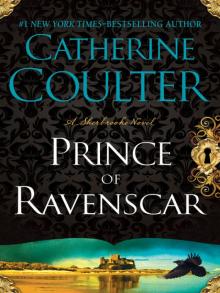 Prince of Ravenscar
Prince of Ravenscar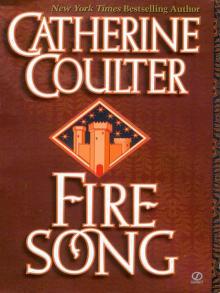 Fire Song
Fire Song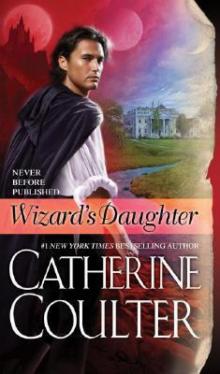 Wizard's Daughter
Wizard's Daughter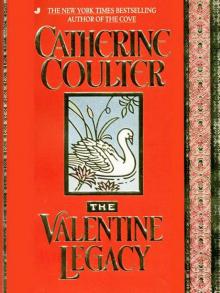 The Valentine Legacy
The Valentine Legacy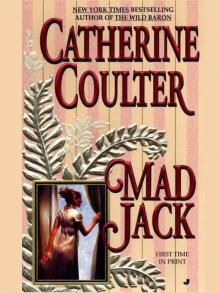 Mad Jack
Mad Jack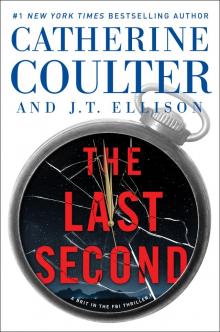 The Last Second
The Last Second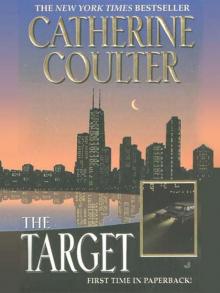 The Target
The Target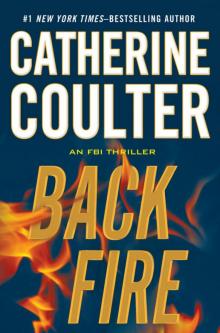 Backfire
Backfire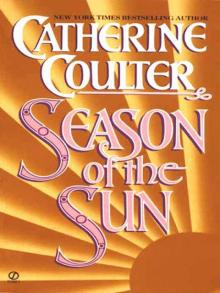 Season of the Sun
Season of the Sun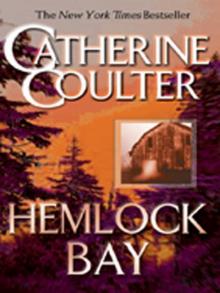 Hemlock Bay
Hemlock Bay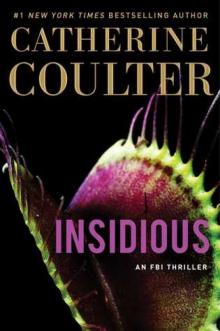 Insidious
Insidious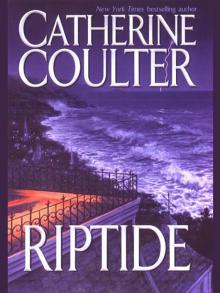 Riptide
Riptide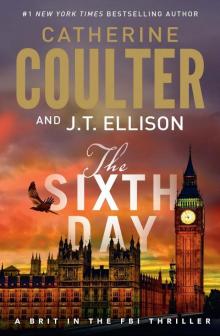 The Sixth Day
The Sixth Day Secret Song
Secret Song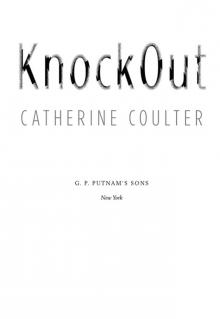 KnockOut
KnockOut Jade Star
Jade Star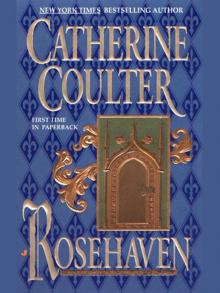 Rosehaven
Rosehaven The Hellion Bride
The Hellion Bride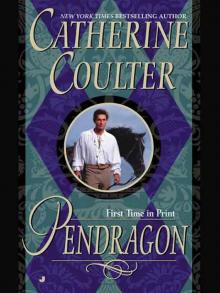 Pendragon
Pendragon Vortex
Vortex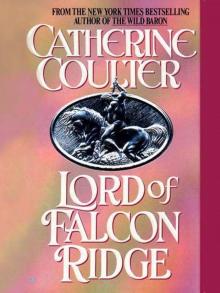 Lord of Falcon Ridge
Lord of Falcon Ridge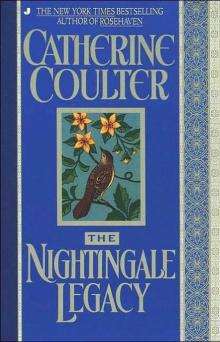 The Nightingale Legacy
The Nightingale Legacy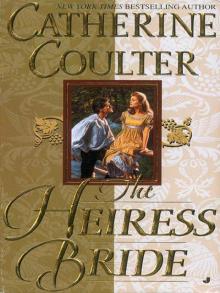 The Heiress Bride
The Heiress Bride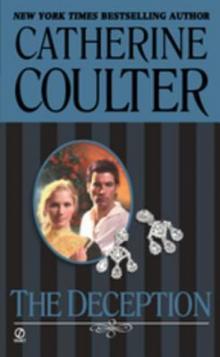 The Deception
The Deception The Maze
The Maze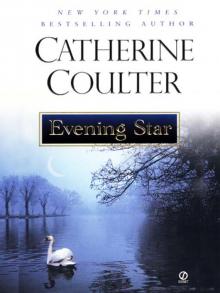 Evening Star
Evening Star Wild Star
Wild Star The Final Cut
The Final Cut Paradox
Paradox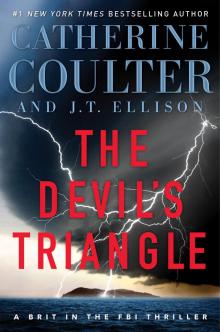 The Devil's Triangle
The Devil's Triangle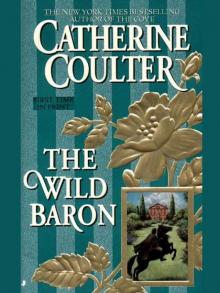 The Wild Baron
The Wild Baron Point Blank
Point Blank Labyrinth
Labyrinth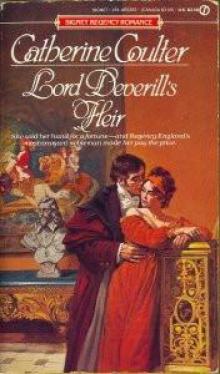 Lord Deverill's Heir
Lord Deverill's Heir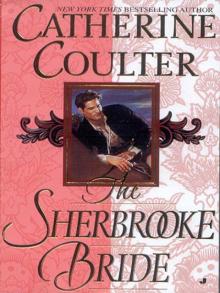 The Sherbrooke Bride
The Sherbrooke Bride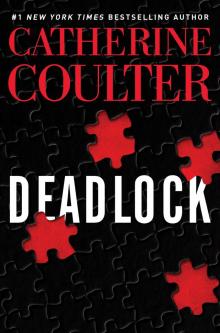 Deadlock
Deadlock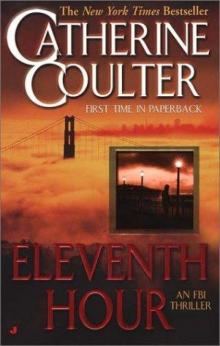 Eleventh Hour f-7
Eleventh Hour f-7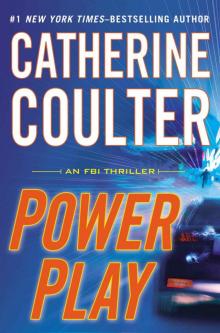 Power Play (An FBI Thriller)
Power Play (An FBI Thriller)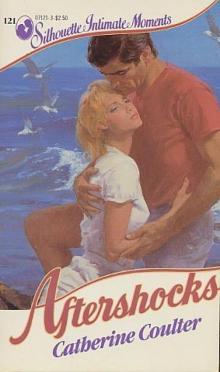 Aftershocks
Aftershocks Sherbrooke Twins tb-8
Sherbrooke Twins tb-8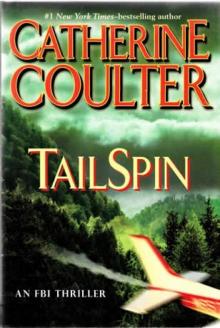 Tail Spin ft-12
Tail Spin ft-12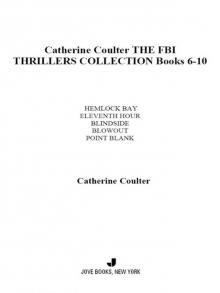 The FBI Thrillers Collection
The FBI Thrillers Collection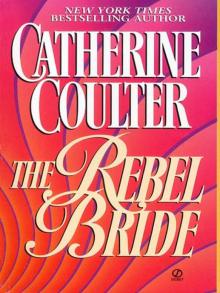 The Rebel Bride
The Rebel Bride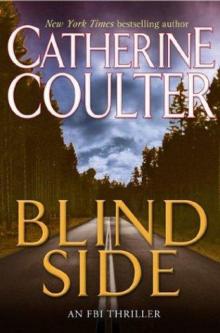 Blindside f-8
Blindside f-8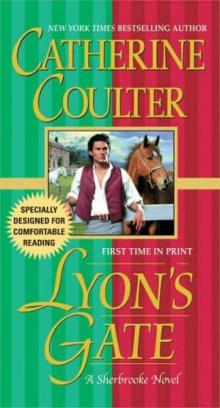 Lyons Gate tb-9
Lyons Gate tb-9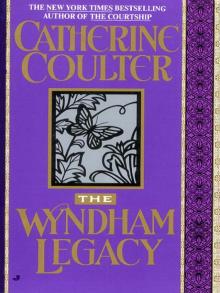 Wyndham Legacy
Wyndham Legacy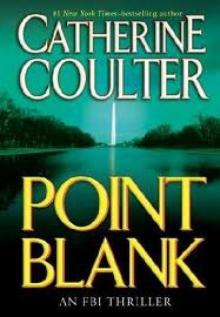 Point Blank f-10
Point Blank f-10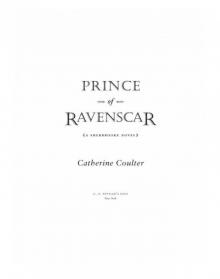 The Prince of Ravenscar
The Prince of Ravenscar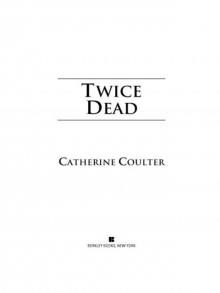 Twice Dead
Twice Dead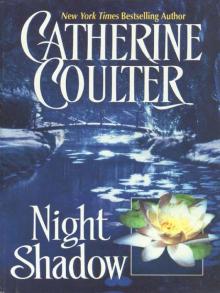 Night Shadow
Night Shadow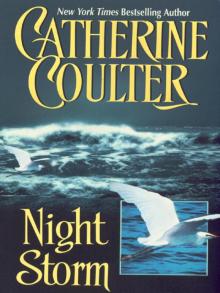 Night Storm
Night Storm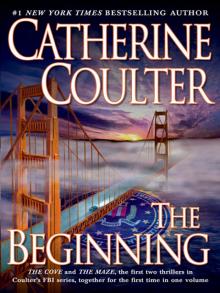 The Beginning
The Beginning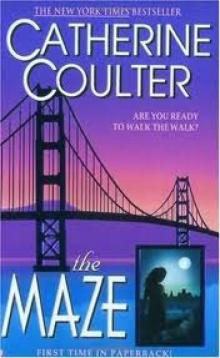 The Maze ft-2
The Maze ft-2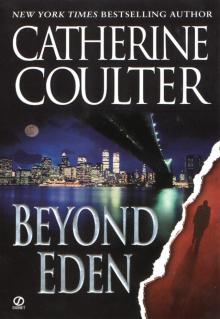 Beyond Eden
Beyond Eden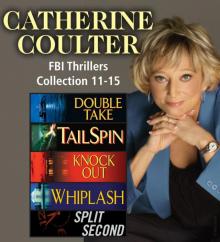 The FBI Thrillers Collection: Vol 11-15
The FBI Thrillers Collection: Vol 11-15 FALSE PRETENSES
FALSE PRETENSES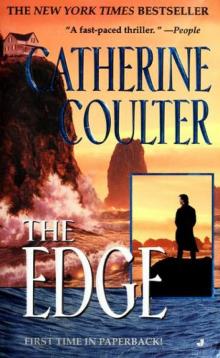 The Edge f-4
The Edge f-4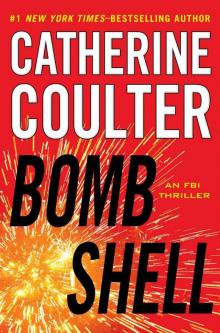 Bombshell (AN FBI THRILLER)
Bombshell (AN FBI THRILLER)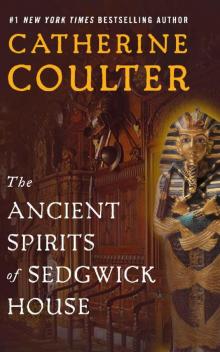 The Ancient Spirits of Sedgwick House (Grayson Sherbrooke's Otherworldly Adventures Book 3)
The Ancient Spirits of Sedgwick House (Grayson Sherbrooke's Otherworldly Adventures Book 3)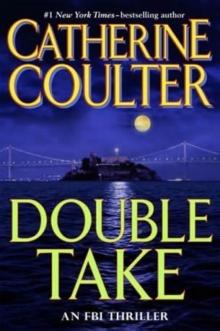 Double Take ft-11
Double Take ft-11 The Heir
The Heir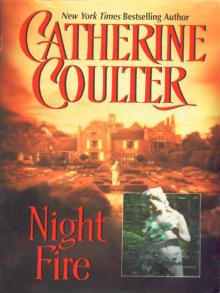 Night Fire
Night Fire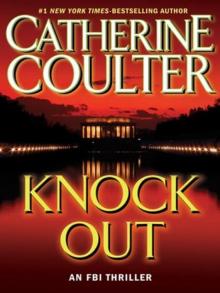 KnockOut ft-13
KnockOut ft-13 Hemlock Bay f-6
Hemlock Bay f-6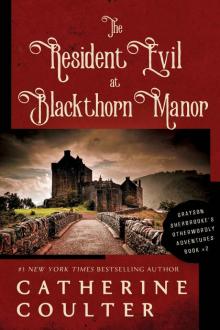 The Resident Evil at Blackthorn Manor (Kindle Single) (Grayson Sherbrooke's Otherworldly Adventures Book 2)
The Resident Evil at Blackthorn Manor (Kindle Single) (Grayson Sherbrooke's Otherworldly Adventures Book 2)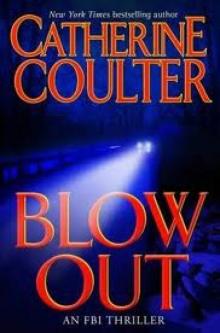 Blowout ft-9
Blowout ft-9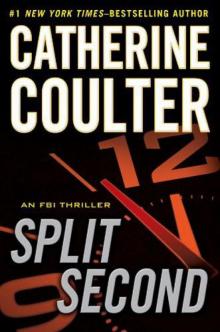 Split Second f-15
Split Second f-15 The Sherbrooke Series Novels 1-5
The Sherbrooke Series Novels 1-5 Impulse
Impulse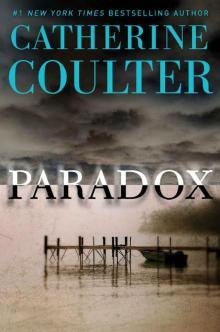 Paradox (An FBI Thriller Book 22)
Paradox (An FBI Thriller Book 22)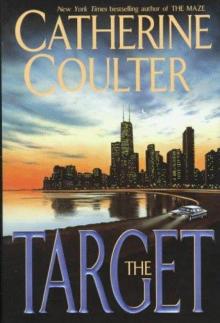 The Target f-3
The Target f-3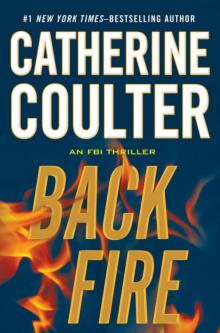 Backfire fst-16
Backfire fst-16 Born To Be Wild
Born To Be Wild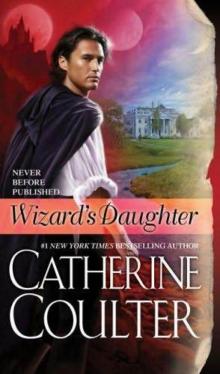 Wizards Daughter tb-10
Wizards Daughter tb-10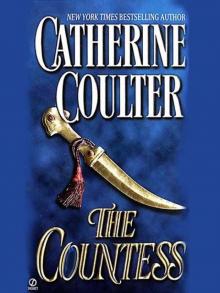 The Countess
The Countess